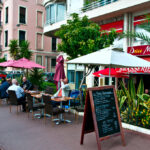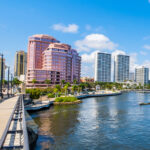Puerto Rico, a vibrant island nestled between the Caribbean Sea and the North Atlantic Ocean, has transformed over the past years into a burgeoning haven for the ultrawealthy and remote workers. An amalgamation of sandy beaches, cultural richness, and attractive tax incentives, the Commonwealth of Puerto Rico offers an enticing lifestyle to those seeking an affluent escape or a versatile remote working destination.
Traditionally, tax havens like Switzerland, the Cayman Islands, and Monaco have held sway over the ultrawealthy. However, in recent years, Puerto Rico has risen as a strong contender. The pivotal turning point for the island was the introduction of Acts 20 and 22 (now unified into Act 60) in 2012, aimed at bolstering its economic growth. Act 60 provides substantial tax benefits to new residents and businesses that establish their services there. For individuals, it offers a 100% tax exemption on all dividends, interest, and capital gains. For companies, it promises a 4% corporate tax rate, a notable reduction compared to the U.S. federal rate.
This competitive tax structure has proven incredibly effective at attracting a broad array of investors, entrepreneurs, and high net-worth individuals (HNWIs) from across the globe. The burgeoning cryptocurrency industry, in particular, has seen many of its affluent community members migrate to Puerto Rico. They’ve been drawn not only by the tax benefits, but also by the island’s supportive and growing tech ecosystem. By establishing residence in Puerto Rico, these individuals can enjoy the financial advantages without renouncing U.S. citizenship, which makes the proposition even more enticing.

As the ultrawealthy have flocked to Puerto Rico, they’ve contributed to an influx of investment and development. New luxury residences, resorts, and commercial projects have taken root, fostering a real estate boom and transforming the face of the island. Puerto Rico’s real estate market is flourishing, offering high-end properties that cater to these wealthy inhabitants’ refined tastes, and as a result, prices in some areas have seen a significant upswing.
Parallel to this wealth migration, Puerto Rico has also emerged as a hotspot for remote workers. The onset of the COVID-19 pandemic dramatically accelerated the trend of remote work globally. Employees were no longer tied to a physical office, resulting in a “work-from-anywhere” culture. Puerto Rico, with its appealing climate, relaxed pace of life, and wide-ranging amenities, became an attractive option for these digital nomads.
High-speed internet, an essential resource for remote work, is available throughout most of the island, providing a robust infrastructure for digital professions. Plus, Puerto Rico’s location in the Atlantic Standard Time Zone is convenient for workers needing to coordinate with U.S. and European business hours. Moreover, the cost of living in Puerto Rico, despite the recent influx of wealth, remains significantly lower than in most major cities in the mainland U.S., making it an affordable option for many.
The influx of the ultrawealthy and remote workers has brought about positive economic changes for Puerto Rico. Increased investment has bolstered the economy, job opportunities have grown, and there’s been a renewal of commercial and cultural activity. However, this transformation hasn’t been without challenges. Rising property prices and cost of living have sparked concerns about gentrification and the displacement of local communities. It’s a delicate balancing act between fostering economic development and maintaining the unique cultural and social fabric that makes Puerto Rico so special.

These new dynamics are stimulating a new Puerto Rico, an island that is simultaneously embracing modernity and maintaining its rich heritage. The arrival of the ultrawealthy and remote workers presents both opportunities and challenges, sparking a period of change and growth. Puerto Rico’s emergence as a haven for these groups reflects a broader global trend towards geographic flexibility and the search for lifestyle optimization. As we move further into the digital age, the way we view work, wealth, and location is shifting, and Puerto Rico’s situation embodies this transformation.
One significant aspect of this transformation lies in how Puerto Rico is investing in its future. The economic benefits garnered from the influx of the ultrawealthy and remote workers are being channeled back into the island’s infrastructure and community development initiatives. The government is keen on ensuring that this development is inclusive and sustainable. They’re taking measures to promote local industries, improve education and healthcare systems, and enhance public utilities and transportation.
Efforts are also being made to diversify the economy and reduce dependency on tax-incentive beneficiaries. Local entrepreneurship is being fostered in areas such as renewable energy, agriculture, and technology, providing a counterbalance to the wealth-focused industries.
On a community level, the ultrawealthy, themselves often successful entrepreneurs and business leaders, are giving back to the island. They’re initiating projects focused on enhancing local communities, improving education, and preserving the island’s natural beauty. This spirit of philanthropy is further fostering Puerto Rico’s development, allowing the island to benefit from their resources and expertise.

For remote workers, Puerto Rico offers a blend of comfort, adventure, and cultural richness. From surfing on Rincon’s beaches to hiking in El Yunque National Forest, the island is packed with natural wonders that offer a refreshing counterpoint to their digital lives. At the same time, cities like San Juan offer an exciting mix of history, culture, gastronomy, and nightlife. The local community is warm and welcoming, and remote workers often find themselves integrating into this vibrant culture, bringing an infusion of different perspectives and experiences to the island.
However, the social implications of this transformation need to be navigated with care. The rising cost of living and potential gentrification threaten the delicate equilibrium of Puerto Rican society. While the influx of wealth brings opportunities, it’s essential to ensure that the benefits are felt widely, and the vibrant Puerto Rican culture and community remain intact.
Moving forward, the challenge for Puerto Rico lies in leveraging this newfound status as a haven for the ultrawealthy and remote workers while ensuring the island’s development is sustainable and inclusive. Its government and people are navigating this path with cautious optimism, eager to seize the opportunities while preserving the essence of their homeland.
Puerto Rico’s emergence as a haven for the ultrawealthy and remote workers signifies a seismic shift in the island’s socio-economic landscape. As these groups continue to migrate, their impact will indelibly shape the island’s future. And as Puerto Rico leverages this evolution to fuel its development, it stands as a testament to the possibilities and challenges ushered in by the digital age and changing global economic patterns.







